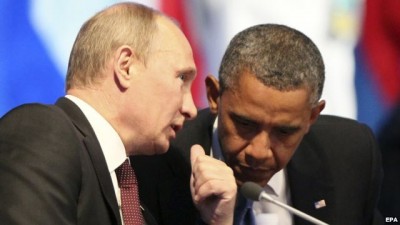U.S. Yields to Russia’s Insistence Upon Democracy in Syria
Syria Peace Talks in Vienna

The Syrian peace talks in Vienna, over the weekend, produced an agreement between all parties, and it constitutes a major defeat for the United States, because the result is entirely in accord with the longstanding Russian position, which the U.S. government has consistently opposed, that only the Syrian people should have the right to determine who will, and who won’t, be able to run in Syrian elections.
The AP headlined on Sunday, November 15th, “Syrian Legislator Praises Aspects of Plan to End War,” and quoted Syrian parliamentarian Omar Ossi, head of the parliament’s reconciliation committee, as telling the AP that “the plan has many points that ‘run in harmony’ with Assad’s position.” What Ossi objected to was that some nations are “betting on the issue of toppling the Syrian regime by military force,” instead of by allowing democracy to determine the result.
On Saturday, November 14th, the crucial second round of the Vienna talks on resolving the crisis in Syria ended with a joint statement in which all 17 of the participating countries agreed that in six months, Syria must have a transitional government, and that 12 months after that, there will be a Presidential election to determine the country’s leader.
The key sticking-point until this weekend had been whether Syria’s current President, Bashar al-Assad (whom even Western polls show to be overwhelmingly supported by Syria’s population) would be allowed to be a candidate in this election. The U.S. said no, Russia said yes.
Up to that time, the U.S. had consistently insisted that Assad must be removed from office. However, after the Paris terrorist bombings on Friday the 13th, Secretary of State Kerry indicated that the United States might cease to insist on Assad’s removal. Russia, and its allies, Iran and Syria, had already made clear, and they continued to hold, that there be simply no agreement if the U.S. and its allies (including Turkey, Saudi Arabia, Qatar, and UAE — all very active participants in that war to overthrow Assad) continued insisting on having a right to dictate who may and who may not run in this election. Russia and its allies insisted that only the Syrian public has a right to determine Syria’s leader — that no foreign powers do.
Though the United States position had continued to be supported by America’s allies, the U.S. Secretary of State himself finally decided to accept the position of Russia and its allies, Iran, and Syria, so that the more pressing issue of terrorism may be addressed, in the wake of the Paris bombings.
In recent weeks, U.N. Secretary General Ban Ki-Moon has repeatedly condemned the U.S. position as “disrespect on international law,” and saying that it “is not acceptable. It’s not fair.” That’s how blatant America’s opposition to democracy in Syria had been (until now): blatant enough to cause even a person in his position to condemn it in public.
This Vienna agreement was signed by representatives of all of the 17 countries, the UN, the EU and the Arab League. Its text has not yet been published. The terms of the agreement are currently known only by statements about it from participants at the talks.
Specifically, the agreement is said to specify that, by 14 December 2015, diplomats will reconvene to discuss any residual issues.
On 1 January 2016, the UN will then convene formal negotiations between the Syrian government and its political opponents who are not involved in terrorist activities. Obviously, defining who those parties are will be highly contentious between the U.S. and its allies, and Russia and its allies.
On 14 May 2016, free elections will be held in Syria, administered by the UN.
The agreement specifies that the war against jihadist groups, all of which have been trying to bring down the Syrian government, will continue. This provision of the agreement recognizes the unacceptable role that these groups, such as Al Nusra (Al Qaeda in Syria) and ISIS, play in bombings not only in France but throughout Europe and the Middle East. The agreement won’t say whether those groups may participate in the elections, but it will specify that the war against those groups can continue, even while the peace process in Syria is being implemented. The “ceasefire” won’t apply to efforts to wipe out those jihadist groups, which are illegal in Syria.
Investigative historian Eric Zuesse is the author, most recently, of They’re Not Even Close: The Democratic vs. Republican Economic Records, 1910-2010, and of CHRIST’S VENTRILOQUISTS: The Event that Created Christianity.

